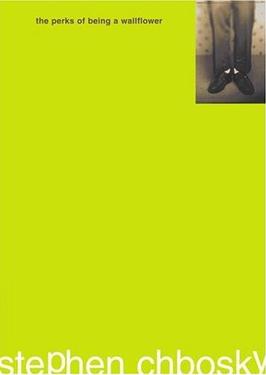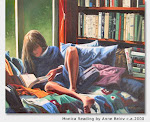Designed by: Mr. M. Kyle J. Moody
in Conjunction with the UCLA Writing Project's Study Group on Homophobia
and as Presented at the 2007 UCLA Chancellor's Conference
and Numerous Conferences Around the Country
Rationale:
Through work that meets virtually every 9th grade standard as outlined in the California State English Language Arts Frameworks, students in this course will complete a project based on an issue that not only plagues a character in their text, but that also impacts themselves and their community. By pushing them to be interested in the life of the character, and the character’s well-being, students will create a proposal for a community service project that they could potentially undertake in their home (or school) community. Through greater interest in humanity, and greater investment in their home and school communities, these students will have gained something far greater than grades on an assignment or proficiency in a set of standards; they will have gained a commitment to their (and the community’s) future.
Work leading up to the completion of this proposal will incorporate expository research, literary analysis, and persuasive writing therefore addressing all SPA identified focus standards for grade nine.
Performance Objectives:
While working in small groups (of 4 or 5), students will:
apply appropriate reading strategies to make meaning of text;
engage in research and individual inquiry to locate, analyze, and evaluate information;
evaluate the credibility of an author’s argument;
analyze, evaluate, and elaborate on informational and literary texts;
use the writing process for multiple purposes, including on-demand writing tasks;
use inquiry and multiple sources to write research papers;
defend a position using appropriate evidence;
develop grade-level appropriate academic vocabulary;
prepare for California assessments, including the CAHSEE;
and contribute to their school and community through a service project.
Procedure:
Students will brainstorm relevant questions on topics presented
Students will be sorted into groups based on interest and teacher judgment
Students will generate further researchable questions, sort those questions into categories, and then link those categories to the criteria outlined for the project (see student handout)
Students will conduct research (book, Internet, field studies) on their assigned topic and write expository compositions outlining that research
Students will link their research project to a character presented in the text, outline the impact of that topic on the character, and develop a needs assessment for that character
Students will use their research to develop a needs assessment for their school or home community
Students will use both needs assessments to brainstorm possible projects
Students will then create a program or institution to meet the needs of their character and school or home community (i.e. a teen help line or youth center)
Students will base that program or institution in their research
Students will outline all aspects of the program or institution chosen
Students will write a proposal to create and implement this program or institution that situates it within the context of similar programs or institutions, outlines its expressed purpose or addressed need, and identifies the circumstances necessary for its success
Students will create publishable writings for this program or institution to a. illicit funding and necessary property, b. attract the professionals needed to run and maintain it, and c. gain clientele (including, but not limited to, the character themselves)
Students will present their research and this proposal, models, pamphlets, fliers, newspaper ads, etc. to an audience (which may include school officials, community members, professionals, or parents)
Students will possibly document their work on a website or in a classroom publication.
Product:
Students will produce a written essay outlining their research, their needs assessment, their proposed program/institution, and its desired results.
Students will highlight this essay in the form of a PowerPoint presentation which outlines the problem, its history and explicit need, any previous attempts undertaken in their community to meet that need, their project, how it is different than/similar to others currently in existence, and how it will directly impact the expressed population.
Students will also create formal, published documents as called for (i.e. models, pamphlets, fliers, business letters requesting funding/housing, etc, ads for the hiring of professionals, information for possible clientele, etc).
Students will present their essays, PowerPoint presentations, and all above mentioned documents in a formal presentation (open for assessment).
Evaluation:
Students will be evaluated on the following criteria:
- evidence that written work meets the standards (teacher/self assessment using rubrics)
- evidence that presentations meet the standards (teacher/self/peer assessments w/rubrics)
- evidence that students worked collaboratively (observations, self/peer feedback)
- evidence that work was done honestly and legitimately
- evidence that students used written/oral feedback

